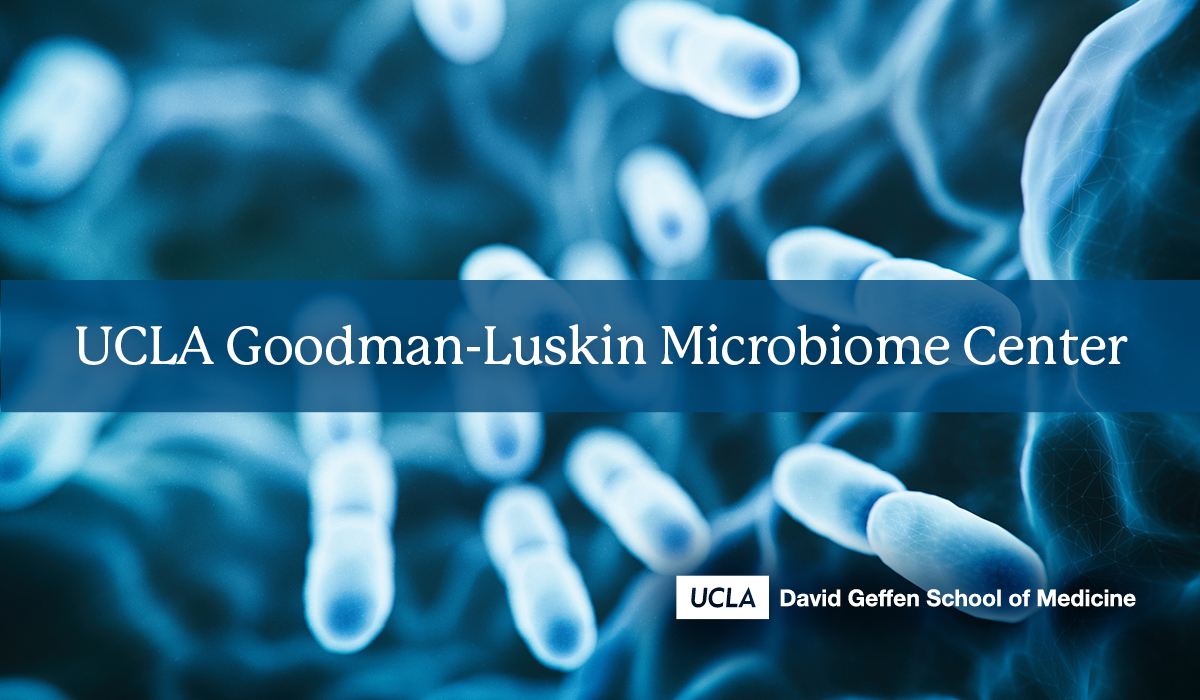The Amazing Evolution of the Goodman-Luskin Microbiome Center at UCLA

PREMIUM CONTENT for MEMBERS ONLY
Studying the bidirectional interactions between the brain and the gut in health and disease has been the focus of my 40 years in academic medicine, an interest that was preceded by my research on the interactions between the brain and the heart during my dissertation in Medical School.
From the beginning, I realized that irritable bowel syndrome (IBS) was the quintessential disorder of altered brain gut interactions, a concept that was virtually ignored by my colleagues in gastroenterology (“a disorder of neurotic housewives”) and which was a difficult research area to get funding for. At the time, patients were equally reluctant to accept the brain gut interaction model, as they were concerned it would reinforce the widespread prejudice that IBS was all in the head, and not a real disorder.
After spending several decades of NIH- and philanthropy-supported research combined with close clinical interactions with patients suffering from brain gut disorders, from the esophagus, stomach to the large intestine, I was able to obtain a generous gift from the Oppenheimer Family Foundation to establish the Center for Neurobiology of Stress and Resilience. I felt confident that the brain-gut model was able to fully explain the development and symptoms, and provide a rational treatment approach to my patients with IBS. It was particularly rewarding that some 40 years after I had first published and lectured about altered brain-gut interactions, the field gradually accepted our original concept and suddenly started referring to these syndromes for the first time as “disorders of gut–brain interaction, related to any combination of the following: motility disturbance, visceral hypersensitivity, altered mucosal and immune function, altered gut microbiota, and altered Central Nervous System.”
The story took a new turn after several intriguing animal studies were published in the literature, which suggested that microbes living in the gut may play a significant role in these brain-gut interactions as well. Although initially skeptical about these findings, together with my colleague Dr. Kirsten Tillisch, I performed the first research study in healthy human participants that confirmed the ability of microbes (given as a probiotic cocktail) to communicate with the brain. Following these initially startling findings, our group published close to 100 manuscripts strongly suggesting a link between the 40 trillion microorganisms in our gut and structure and function of the brain.
My research interest rapidly expanded beyond IBS to other putative brain-gut-microbiome disorders such as autism spectrum disorders, early cognitive decline, Parkinson’s disease and inflammatory bowel disorders. Collaborations with investigators with clinical and research interests in these disorders developed across the UCLA campus and beyond, to investigators at USC, UCSD, Duke University and Baylor University. Based on these collaborations and the growing scientific interest in the field of brain-gut-microbiome interactions, I elicited the interest of the chief of the Vatche & Tamar Manoukian Division of Digestive Diseases at UCLA, Dr. Eric Esrailian, to support the development of a translational research center.
After two years of hard work to bring together a group of outstanding investigators working in different areas of medicine on the role of the gut microbiome, I became the founding director of the new center, and a dream came true when Andrea and Donald Goodman and Renee and Meyer Luskin made a $20 million gift to establish the UCLA Goodman–Luskin Microbiome Center.
This new center will facilitate multidisciplinary collaborations among experts across the campus on the role of the human microbiome in health and disease. By funding senior faculty, drawing talented new researchers into the field, and building a strong infrastructure for these studies through the development of core facilities, the center will work to identify the microbiome’s role in disease prevention and the body’s immune response with the goal of developing new treatments for a range of conditions including inflammatory and irritable bowel diseases; obesity and eating disorders; neurodevelopmental and neurodegenerative diseases such as autism, Alzheimer’s and Parkinson’s disease; liver disease, substance use and psychiatric disorders.
The new center, based in the UCLA Vatche and Tamar Manoukian Division of Digestive Diseases, will bring together researchers from across the UCLA campus in interdisciplinary efforts to study how the trillions of microorganisms that inhabit the human gut are implicated in wide-ranging health-related conditions — and how those findings can be translated into new strategies for prevention, treatment, and health promotion.
Looking back over the past 40 years, I couldn’t be more excited that my interest in brain body interactions which started in Medical School persisted over nearly half a century and culminated in the publication of more than 415 manuscripts, two bestselling books, an upcoming PBS documentary and the launching of a cutting-edge research center in an area with immense implications for health and disease. I am glad to have stuck with my gut feelings!

Emeran Mayer, MD is a Distinguished Research Professor in the Departments of Medicine, Physiology and Psychiatry at the David Geffen School of Medicine at UCLA, the Executive Director of the G. Oppenheimer Center for Neurobiology of Stress and Resilience and the Founding Director of the Goodman-Luskin Microbiome Center at UCLA.